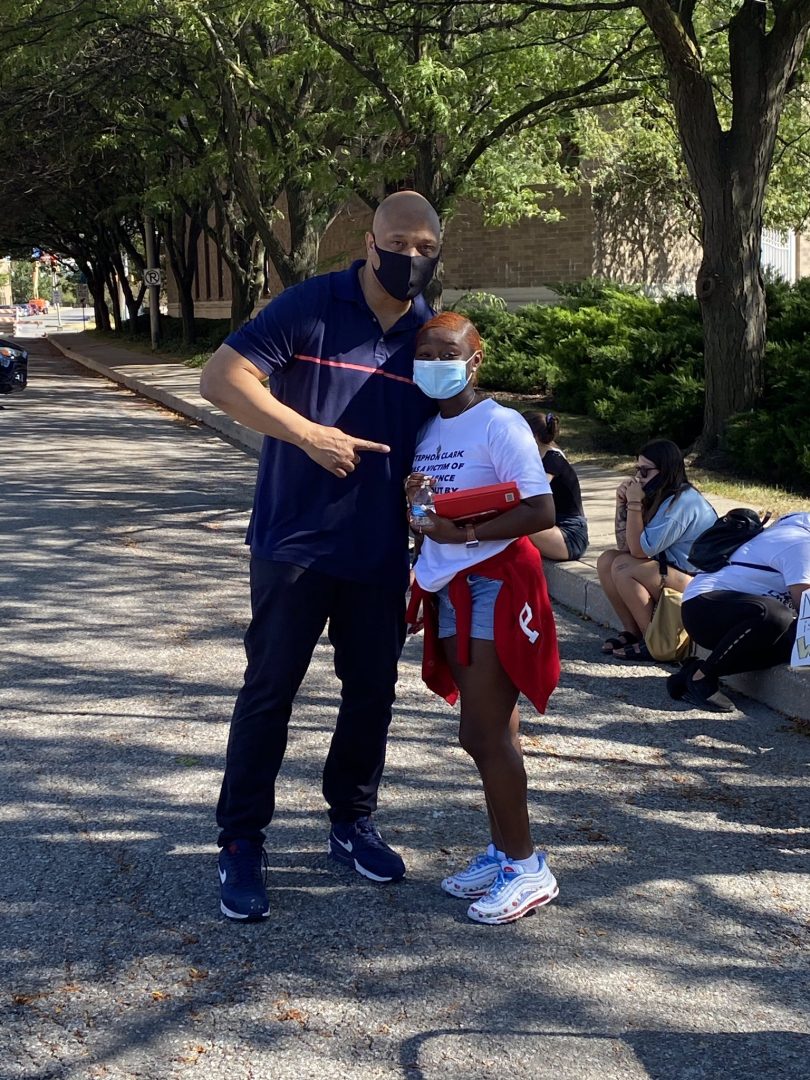Activism can be defined as campaigning to bring about political or social change, but activism may look different from one person to another. To me, activism is about not only the amount of work someone invests, but also the passion to see things change. Change occurs as a result of activism, and the passion to help others by engaging in activistic campaigns is where this change ultimately stems from. But because our passions are different, what we choose to do looks different for each of us.

My passion for serving my community has inspired and kept me on my activist journey. When people call me an activist, that sounds funny or weird to me, but I have had to learn to accept that activism is indeed a huge part of my service. I want to help people— all people— especially those who have been discriminated against because of their sexuality, ethnicity, religion, or income. Because I am a queer black woman who has lived a large part of my life without stability in my identity, this is important to me, not only because of my experiences but also the unfortunate experiences of others around me. My life changed when I realized that these terrible experiences that I had studied, lived, and watched happen commonly, more frequently than I ever could have imagined.
This year has been quite different for activism in this country and in Indianapolis. The death of Dreasjon Reed sparked a fire in the community that I had never seen before, and I think it was because of who he was as well as the climate of the world at the time he was fatally shot. Usually, the larger cities have large demonstrations and movements, but to have them happen in Indy was surreal. I have lived in Atlanta and Indianapolis, and the differences in these communities are overwhelmingly apparent. When living in Atlanta, I often saw activism at work, and it felt normal and everyday. People were proactive; they fought for equity and the rights of others. When I moved to Indianapolis, I saw nothing of the sort. So being part of the shift, prompting social action this summer, felt like a pivotal moment in my life.
Throughout the summer— COVID-19 and all— I participated in social justice efforts. I marched, boycotted, sat and protested in every way I could think of. Organizing protests has been one of the most challenging things I have ever done, both physically and mentally. Meeting with local legislators and community leaders has been easy. I can call them up, email them, and even message them on social media and receive responses. But mapping out action plans on how a protest will take place felt like a huge task. Ensuring safety from anti-equality groups and the police is impossible, but making sure we all strive to keep each other safe as our voices are heard has been the goal. Seeing so many people fight against our work for equity and justice has been the hardest thing for me to grasp. But it shows us that the work to ensure that all people are cared for and treated justly is far from over.
Every step of my journey as an organizer has been made possible through the help of my community. I never want anyone to think that doing the work and implementing change are impossible. As long as you strive for change, it will come. It may not come today, tomorrow, or even next year, but progress does come when the passion and fire to work are consistent.







